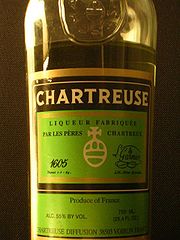 When I was working my first job out of college, my boss Cathy and her husband Ken were a charming and sophisticated and unfailingly cheerful couple, the kind of couple that it is easy to envy, the kind of couple that one suspects of stumbling upon some hidden secret to a happy life. If there was, indeed, some magical key to their happiness, they never told me what it was. But Ken did once tell me how to make amazing mashed potatoes.
When I was working my first job out of college, my boss Cathy and her husband Ken were a charming and sophisticated and unfailingly cheerful couple, the kind of couple that it is easy to envy, the kind of couple that one suspects of stumbling upon some hidden secret to a happy life. If there was, indeed, some magical key to their happiness, they never told me what it was. But Ken did once tell me how to make amazing mashed potatoes.
“Do you want to know how to make the best mashed potatoes in the world?” he asked me. He had a glow of office-party wine and benevolent wisdom about him. “Do you?”
And I did. In fact, I was dying to know. There is something alluring, maybe even thrilling, about the idea that just one simple component has the power to utterly transform the whole.
There are, in my opinion, a few different categories of secret ingredients. The first is that endless list of exotic oddities that chefs like to talk about in interviews and present as indispensable. “I simply wouldn’t be able to survive without my fennel pollen,” they will say. Or their yuzu juice or their vanilla crystals or their volcanic sea salt flakes from Cypress. There is something intellectually interesting in knowing these things exist, I suppose, but where am I to find fennel pollen? And if I can find it, will I be willing to pay for it? And will it taste good on anything I’m actually capable of making?
At least these chefs are forthcoming. There is a second category of “don’t ask, because you will never be told” ingredients. The list of KFC’s eleven herbs and spices locked away in a vault in Louisville, Kentucky comes to mind, as does the rather ominous-sounding Merchandise-7X formula for Coca-Cola. The French liqueur Chartreuse is made from 130 herbs, which are known by only two living Carthusian monks. But individual cooks sometimes embrace extreme secrecy as well. My paternal grandmother refused to share recipes, and after her death, my mother tried dozens of goulash recipe, trying to replicate her Hungarian delicacy. But it was never quite right, and we assumed that the secret ingredient had gone to the grave with her.
But it’s the third category that captures the imagination. This one is full of seemingly common or banal items that take on spectacular qualities when used in some unexpected way. It’s the peanut butter in the pot of chili, the anchovy in the pasta sauce, the finely-ground coffee rubbed on the steak, the crushed graham crackers in the calamari batter, the chipotle peppers in the eggs. Every cook has a few that they swear by, and deploying them results in the same kind of satisfaction as pulling off a magic trick. Not too long ago, one of my aunts told my mother that it wasn’t some esoteric Hungarian spice or technique that made my grandmother’s goulash taste different. It was some packaged sauce, like Manwich or Ragu. Does this revelation make me think less of her cooking skills? Hardly. It makes me think she was pretty clever to fool everyone for so long with something that was right under their noses.
The secret to Cathy and Ken’s mashed potatoes falls into this third category. When I started this post, I thought I was going to tell you what it was. But now I find that I can’t give it away just yet. I must keep it in reserve, because I am too in love with the possibility of a wise future self who holds the secrets to life and heavenly mashed potatoes. “Do you want to know?” this future self will say, leaning toward some naïve twenty-somethings conspiratorially. “Do you really?” And trust me, they will.
Do you have any secret ingredients that you’re willing to share? Write to us at submissions@pitchknives.com.

Must. Know. Secret. Ingredient! Mashed potatoes are my favorite! I promise I won’t tell…